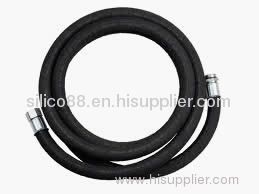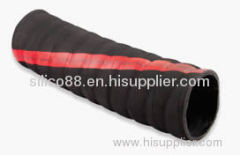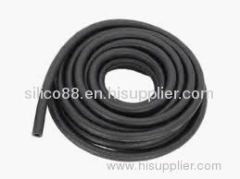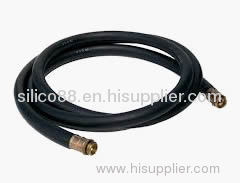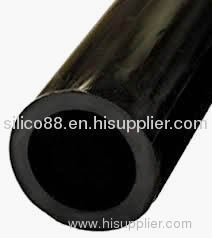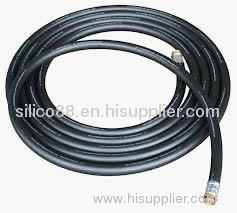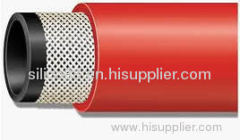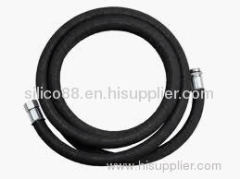|
China Castle Fuel Hose Company
|
Biodiesel Delivery HoseUsing biofuel in vehicles has been a
| Place of Origin: | Beijing, China (Mainland) |
|
|
|
| Add to My Favorites | |
| HiSupplier Escrow |
Product Detail
Petroleum Tank Truck Hose
Using biofuel in vehicles has been a tendency, for it can effectively reduce particulates, carbon monoxide and hydrocarbons from diesel-powered vehicles. However, traditional rubber hose is not quite compatible with the new biofuels. During the transferring process, the biofuels can't have chemical reactions with the delivery hose in case of being contaminated.
Biodiesel delivery hose applies synthetic rubber as its tube, which has a good ability of static dissipating. This is vital in conveying flammable fuels like gasoline, diesel and biodiesel. Static electricity created by the friction of liquid and the tube perhaps ignite the fuel and cause an explosion.
Reinforcement consists of spiral plied synthetic fabric with helix wire. This construction is strong enough to protect hose from crushing, kicking or other damages from the environment.
Cover is made of black synthetic rubber, which has excellent resistance to biodiesel, ethanol and other petroleum products as well as abrasion.
Used in tank truck and in-plant operation to transfer diesel, biodiesel blends, B-100, ethanol blends, gasoline, oil and petroleum-based products up to 55% aromatic content.
The recommended working temperature for this delivery hose is from -30℉to 180℉(-34℃ to 82℃), and working pressure is 150 psi.
| NOM. ID | NOM. OD | MAX WP | BEND RADIUS | VACUUM HG | WEIGHT |
| in. | in. | psi | in. | in. | lb./ft. |
| 1 | 1.5 | 150 | 2 | 29 | 0.59 |
| 1 1/4 | 1.77 | 150 | 3 | 29 | 0.74 |
| 1 1/2 | 2.03 | 150 | 4 | 29 | 0.92 |
| 2 | 2.55 | 150 | 5 | 29 | 1.21 |
| 2 1/2 | 3.07 | 150 | 6 | 29 | 1.56 |
| 3 | 3.58 | 150 | 7 | 29 | 1.94 |
| 4 | 4.6 | 150 | 10 | 29 | 2.53 |
Didn't find what you're looking for?
Post Buying Lead or contact
HiSupplier Customer Service Center
for help!
Related Search
Electric Vehicles
Utility Vehicles
Armored Vehicles
Fast Delivery
Delivery Valve
Delivery Roller
More>>

